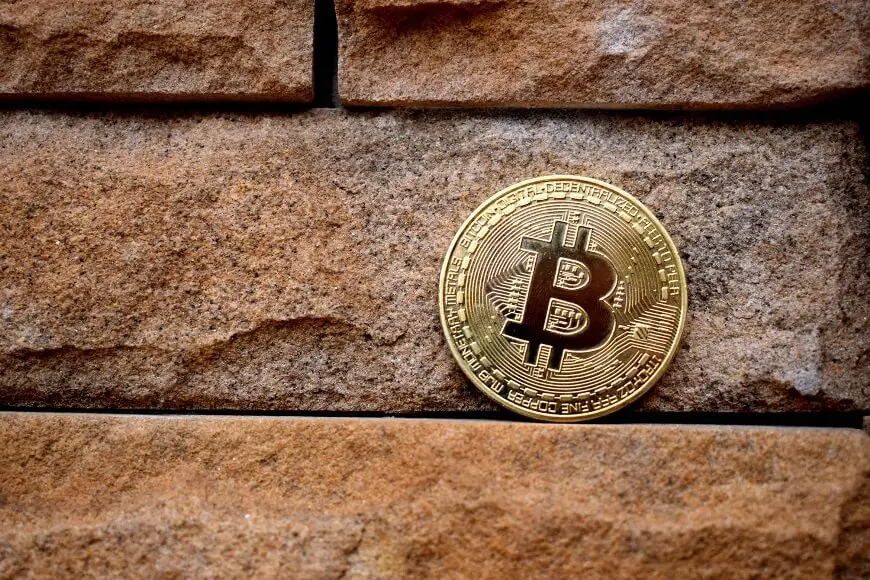

Bitcoin Payment Services - Features and Benefits of Payment Gateways
Introduction
As the first digital currency of its kind, Bitcoin (BTC) is still a major player in the cryptocurrency world. Many experts agree that BTC is one of the safest and most secure forms of money on the internet and in the world at large. Using a cryptocurrency wallet, you can make fast, anonymous, secure, and inexpensive transactions from anywhere in the world where there is access to the World Wide Web.
Since today there is a rapid increase in the number of Bitcoin transactions, many companies started accepting crypto tokens as a means of payment for their goods and services. If you want to know how cryptocurrency works and whether Bitcoin payment services are similar to credit cards, then you are in the right place. Read this article through to find out what a Bitcoin payment gateway is, how it works and how to perform Bitcoin transactions quickly and efficiently.
Are Bitcoin payment services similar to credit cards?
As Bitcoin becomes an increasingly common tool, many large companies that previously handled only fiat payments have started accepting crypto tokens. Today, there are many crypto processors that perform transactions much faster and easier than before. For example, some systems used for purchases in online shops and physical retail outlets now support instant transactions, making BTC as convenient a method as bank cards.
However, there are many differences between cryptocurrency and traditional methods that you should be aware of. For example, to pay for goods or services with a debit/credit card, payment confirmation (PIN code or authorization via biometrics) is required. All transactions are sent to the centralized banking network, where they can be canceled or blocked by the central authority, i.e. the bank.
As for cryptocurrency, it operates in a distributed ledger called the blockchain. Due to its decentralized nature, there is no regulator capable of blocking or canceling your transaction. Operating from a user experience perspective similar to traditional banking methods, Bitcoin services offer higher security and reliability of transactions.
What is a Bitcoin paymnet service?
Any modern BTC payment gateway works similarly to services that accept national currencies, so you can use them in the same way as a credit card. Using a cryptocurrency service, you can accept payments and quickly exchange tokens for fiat money. Let’s say you have a cryptocurrency wallet that holds several BTC tokens.
If you want to transfer digital money to someone, you don’t need to use a processor at all, as you can send tokens directly to the recipient’s wallet address. However, the cryptocurrency service works as an additional layer on top of your crypto wallet, taking on the responsibility of managing your wallet and performing token exchange transactions.
So, here are the highlights regarding the operation of BTC gateways:
-
Despite regulatory challenges, cryptocurrencies are becoming an increasingly common banking method with many companies accepting BTC and some altcoins.
-
A cryptocurrency gateway acts as an additional layer on top of your BTC wallet to save you the hassle of currency conversion and wallet maintenance.
-
BTC payment services are a great option for those who are still skeptical about digital money, as they can convert tokens into fiat money immediately.
Cryptocurrency gateways are a great solution for many companies whose users wish to pay for goods and services in a secure environment using their cryptocurrency savings.
How does Bitcoin payment service work - Proccessing
BTC gateways are online platforms that provide their customers with the ability to quickly convert crypto tokens into fiat money or vice versa. Since BTC is a highly volatile currency, there is a need to convert quickly in order to avoid possible losses. Thus, BTC processors facilitate transactions by assuming all sorts of risks in the transfer of funds between the sender and the recipient.
Bitcoin Payment Workflow: Step by Step
In order to accept crypto payments, the workflow must be set up by integrating a payment service or installing an appropriate plug-in. Some processors are able to set up a workflow to perform transactions at offline outlets for customers with a mobile wallet.
In addition, merchants can implement more advanced API-based solutions to process payments both online and offline. So, here is a step-by-step explanation of how the crypto payment acceptance workflow works:
-
When placing an order online or offline, the customer must choose cryptocurrency as the banking method.
-
The processor calculates the actual amount in cryptocurrency corresponding to the value of your product or service in fiat money.
-
Once the transaction is performed, it is instantly converted into the currency of your choice at the current exchange rate.
-
The money will be credited instantly to your e-wallet with the payment system. You can transfer these funds to your bank account manually or automate the process. The merchant can also choose not to convert the cryptocurrency into fiat money and store the tokens for some time. Keep in mind that because the service acts as a third-party risk-taker, transaction fees are higher than if you perform transactions via blockchain.
Advantages and Disadvantages of Bitcoin Payment Services
While standard services interact with banks, their crypto counterparts interact with the blockchain. Decentralized in nature and providing anonymity, processor-based cryptocurrency essentially loses these important properties. However, on the other hand, such solutions make transactions much easier. So, let’s take a look at the key advantages of BTC systems:
-
By eliminating customer anonymity, companies have a much higher marketing opportunity to expand their returning user base.
-
The ability to accept payments in any currency, thus adding a segment of customers who prefer to pay in crypto tokens to the user base.
-
No need to convert currencies yourself.
-
Almost instantaneous transaction processing.
-
Lower risk of loss due to the high volatility of digital money.
Notably, compared to traditional options, Bitcoin processors charge much lower transaction fees. For example, using credit cards, you pay an average fee of 2-3% of the transaction amount. Using BTC services, you will pay around 1%. Although this difference seems insignificant, in the long run, it can be great savings for your money.
Also, by using processors, you don’t need to understand what cryptocurrency is and how it works, as the option to instantly exchange tokens for fiat money at the current market rate is available. As for the disadvantages of gateways, there are several ones:
-
The threat of disruption to the system as there are no perfect software solutions.
-
The threat of losing the key properties of BTC as an independent payment option as it was originally intended.
-
A higher fee than if you transacted directly through the blockchain.
-
The threat of losing money if the software is hacked.
In addition, many platforms advertise quite aggressively, forcing their services which you may not need, especially if the volume of transactions is relatively small.
Closing thoughts
While BTC gateways for transaction processing are not mandatory, they eliminate many of the problems associated with misunderstanding how cryptocurrency works. In addition, they are capable of handling a huge number of transactions, which is especially important for large businesses.
Given Bitcoin’s growth and gradual adoption by many companies, you don’t want to miss out on an additional source of traffic in the form of crypto token customers. So, using an intermediary that instantly converts digital money into fiat cash can help you improve your service quality and increase the profitability of your business as a whole.
F.A.Q.
What does crypto payment mean?
This is when a user selects a cryptocurrency as a banking method and performs a transaction.
How difficult is it to integrate a Bitcoin payment platform?
In today’s world, you will be able to do this without any paperwork or technical problems.
Which existing options are the best?
The best-proven platforms are BitPay, Coinbase, GoCoin, BitcoinPay, and a few others, but the final choice is yours.
Is it possible to set up bitcoin payments at an offline outlet?
You can set up a POS terminal for users with mobile crypto wallets.
How is the conversion into fiat money done?
The system automatically determines the current market average exchange rate and converts the crypto tokens into fiat money accordingly.
What other existing tokens are accepted?
From Ethereum and BTC Cash to DOGE and LTC, most modern platforms support dozens of existing altcoins.



